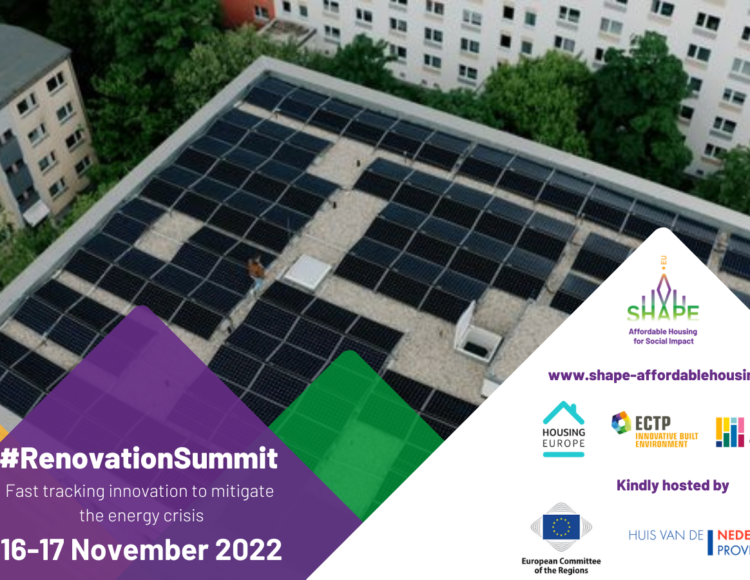Tenants, residents, social and affordable housing providers, and cities faced the impact of the coronavirus, have been welcoming Ukrainians fleeing their countries, and paying incredibly high energy bills and construction materials. How is the public, cooperative, and social housing sector riding the Renovation Wave?
Two years ago, in the middle of the pandemic, not-for-profit housing providers showed ambition – to renovate 4 million homes by 2030.
Only six months later, Housing Europe and the International Union for Tenants (IUT) organised the very first Renovation Summit in May 2021, calling for a fair, inclusive, green energy transition that achieves decarbonisation while preserving social fairness and affordability.
Good practices showed that this is mission possible.
The months after have been incredibly turbulent. Tenants, residents, social and affordable housing providers, and cities faced the impact of the coronavirus, have been welcoming Ukrainians fleeing their countries, and paying incredibly high energy bills and construction materials.
Legislative, financial, and soft measures backed up with solid innovation can still ensure a smooth energy transition for homes and neighbourhoods in Europe.
Who? How? By when?
⌛️The second edition of the Renovation Summit organised by the European Affordable Housing Consortium: Sustainable Housing for Social Impact (SHAPE-EU), Housing Europe, the European Construction, built environment and energy efficient building Technology Platform (ECTP), and Eurocities will be taking care of bringing these questions and answers to the surface.
The two-day event on November, 16th and 17th is arranged in partnership with the European Committee of the Regions and the House of Dutch Provinces.
Tell us if you are coming via the #RenovationSummit hashtag.
We are also curious to hear your thoughts about the ambitions and actions of #shape_eu
